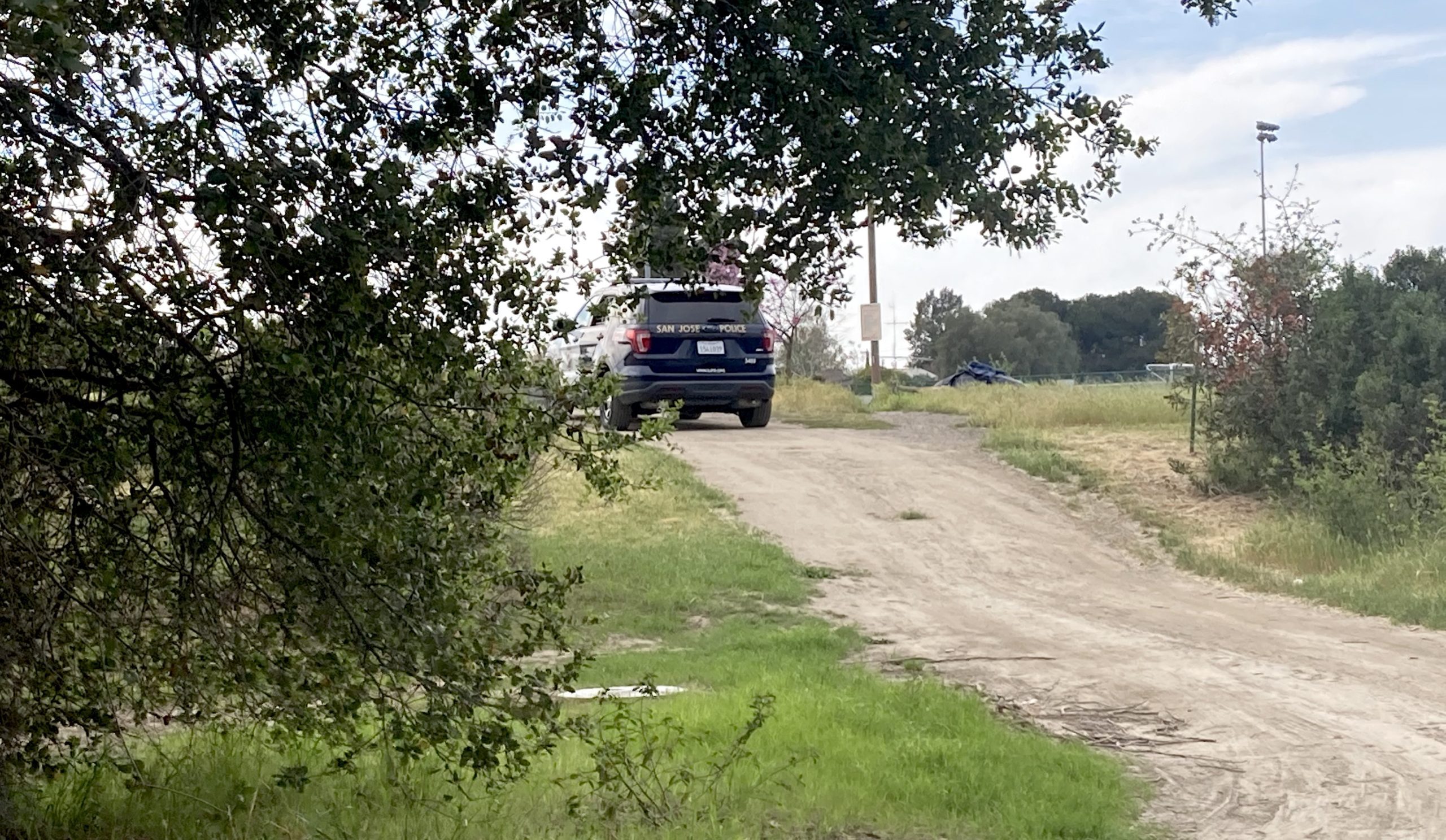Darlene Gladwell spent months cultivating a blooming garden of colorful plants and flowers outside the tent she calls home in San Jose’s Watson Park.
A cluster of at least half a dozen other small homeless encampments surround her along Coyote Creek.
But now Gladwell could go to jail, according to a citation she received, for living in a tent in the park. She was one of at least three residents at Watson Park who received a legal citation from the San Jose police with a mandated court appearance.
She said it was handed down by police officers who threatened the encampment residents with detainment if they aren’t gone by Saturday.
“If anybody wants any free flowers, take them. They’re going to die anyways,” she said. “I’ve been here since July and I have no clue where I’m going to go from here.”
An unusual approach
Most homeless residents receive posted notices from the city a few days before their camp is about to be swept. Citations from police have scarcely been reported.
The citation, received by Gladwell on March 27, references California squatting laws — Penal Code 647e — which prohibits “unlawful lodging” of a tent. It’s unclear how many citations San Jose police have issued in homeless encampments.


A recent San José Spotlight report highlighted how the city has led or participated in 98 homeless sweeps since October 2020 — despite guidance from the CDC to leave homeless camps alone amid COVID-19 — and how they’ve created a revolving door for residents who end up back there a few weeks later.
A San Jose Police Department spokesperson did not return a request for comment regarding the citations.
‘Deserves to be treated better’
Gladwell lives among the wooded area of the park where she stays hidden from people leisurely walking the grassy surface above, playing with dogs and children in the playgrounds.
“Sometimes people walk by and see my garden. They always say, ‘Wow, I love your lilies and always ask how I grew all of it,” she said. “I just want people to look down and see something nice.”
Along with her garden, she has a small table with chairs where she relaxes during the day, sometimes with her friend Joyce Brennan, who lives in an RV, and her cat named “Doobie.”
“All the years I’ve known her, she’s become a sister to me,” Brennan said of Gladwell. “She’s trustworthy, and takes care of my dog during emergencies. She deserves to be treated better.”
Gladwell said she became homeless after losing her job and house because of a DUI conviction in 1998.
The two friends usually sit around the tent, trading stories about their pets – but now they’re also pondering the possibility that they’ll soon have to find another place to live.


Coyote Creek residents Sergio Plascencia and Lee Roberto also received a citation with a mandatory court appearance. The two men, who are in their 60s, know the drill when it comes to abatements.
However, a citation for living in a tent and threats to be jailed for it are new.
“The officer that gave (the citation) to us said if we just plead guilty and show respect to the judge, we could get off without having to pay anything,” Plascencia said. “I’m hoping it works, I mean look, does it look like I have money to pay a citation?”
According to the citations, the unhoused residents are due in court on May 27.
Roberto said police officers have shown up to warn them not to throw trash in the creek, though they said they always use a nearby dumpster in the park.
Officers came to the encampment March 27, Roberto said, and ordered them to walk up to the police vehicle to be fingerprinted. Gladwell said she received the same orders.
Sitting outside and soaking up some sun Monday afternoon, eyes glued to a book, Plascencia said he would begin moving off public property to avoid any future abatement efforts.
“They can’t get me where I’m going,” he said. “At least I hope so.”
A police car drove through the wooded area of Watson Park Sunday where encampment residents had tents scattered around.
“They’re checking to see if we made any progress in moving our stuff out,” Gladwell said. “Of course I’m going to move if they make us.”
Contact Vicente Vera at [email protected] or follow him @vicentejvera on Twitter.



Leave a Reply
You must be logged in to post a comment.